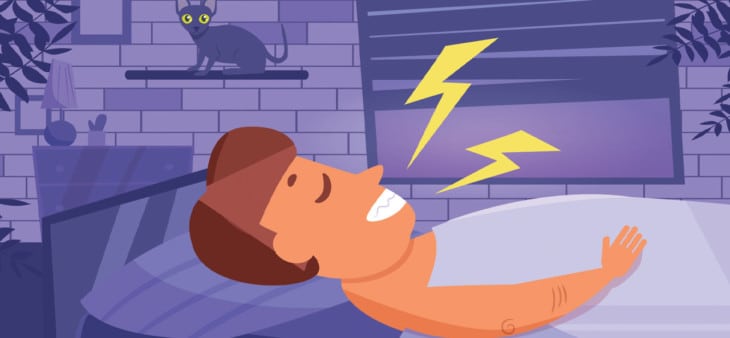
It’s common for adults and children to clench their jaws or grind their teeth every so often. This habit is known as bruxism and most often occurs when you sleep. Although minor infrequent teeth grinding doesn’t harm teeth, if it occurs regularly, it can cause significant enamel erosion and lead to other oral health issues over time.
There are several causes of teeth grinding. While temporary teeth grinding is often caused by stress or anxiety, most people grind their teeth because of crooked or crowded teeth or an abnormal bite. It may also occur because of a medical condition such as sleep apnea.
The best way to diagnose bruxism is to visit your dentist. Your dentist looks for signs of bruxism like worn and damaged teeth, tenderness in the jaw muscles, or wear on the mouth bones. Fortunately, there are multiple ways of managing bruxism.
Ways to Stop Grinding Your Teeth While You Sleep
The treatment prescribed will depend on the severity of your teeth grinding. Some approaches may include:
Develop Positive Stress Management Habits
Some cases of bruxism are due to stress that manifests as jaw tension. You can help to reduce tightness in the jaw muscles by creating a nighttime stress reduction routine. Avoid caffeine before bed. Apply a warm compress to your jaw after brushing teeth and give your jaw muscles a gentle massage (a cosmetic jade roller is an excellent tool for facial muscle relaxation).
You should also avoid chewing non-food items such as gum, pen caps, or ice that cause increased jaw tension throughout the day.
Wearing a Custom Mouthguard
Custom mouthguards are worn while you sleep and help prevent teeth grinding by acting as a barrier between the top and bottom dental arches. Although over-the-counter (OTC) mouthguards are affordable, they’re not custom-fitted, so many people find them uncomfortable to wear while sleeping.
Custom mouthguards are created using molds of your teeth and can be fabricated in various thicknesses, ensuring they perfectly fit your mouth and jaw. Make an appointment with Aurora Dental Group today to have your custom mouthguard made.
Corrective Procedures
Some of the main causes of teeth grinding are crooked or crowded teeth. Correcting these dental issues often results in a more relaxed mouth and jaw, reducing the likelihood of grinding. Dental procedures, such as reductive coronoplasty, reshapes the biting surface of your teeth. This helps prevent grinding and minimizes the effects if it does occur.
Invisalign Orthodontic Treatment
Many people grind their teeth involuntarily at night due to discomfort from gapped, crowded, and misaligned teeth, or overbites, underbites, and crossbites. Invisalign aligners are less invasive than metal braces and effective for correcting minor to moderate misalignments. Repairing these issues improves oral hygiene and helps people break the habit of teeth nighttime teeth grinding.
Like a mouthguard, Invisalign aligners also help reduce the effects of teeth grinding during the day and at night, preventing wear and tear on tooth enamel.
Schedule a Consultation With Aurora Dental Group
Bruxism can have a lasting impact on the health and quality of your teeth. So it is crucial to treat teeth grinding as quickly as possible to preserve your tooth structure. In addition to learning how to manage stress, visit Aurora Dental Group for a consultation to discuss the best bruxism treatment option for your smile.
